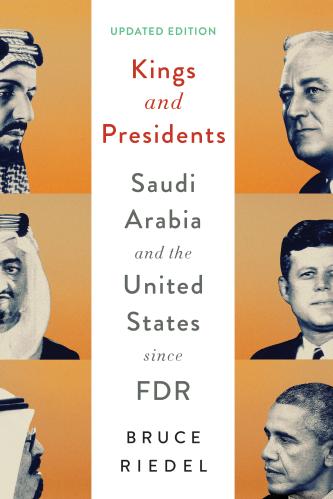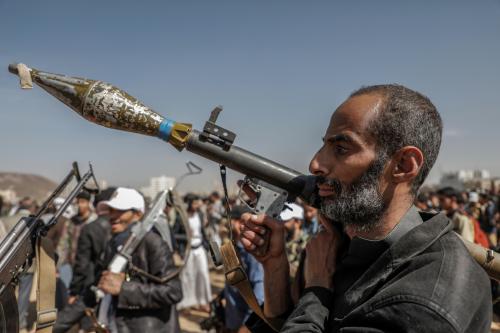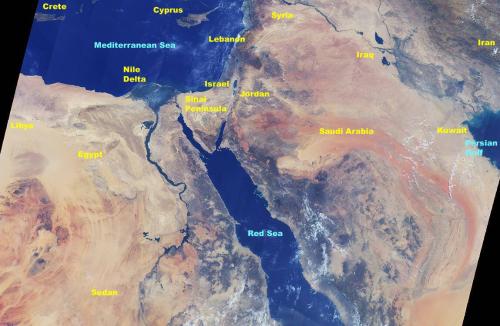As the war in Yemen continues into its fourth year, the humanitarian situation is worsening and the use of Yemen as a proxy in the Saudi-Iranian rivalry is intensifying. On October 25, the Center for Middle East Policy at Brookings hosted a panel of experts to discuss the war in Yemen and the roles the United States and Saudi Arabia play in the conflict. Brookings Senior Fellow Daniel Byman moderated the discussion.
Fatima Abo Alasrar, senior analyst at the Arabia Foundation, opened the event by “offering an alternate view of the conflict and the local dynamic.” In particular, she offered nuance to the current perception of the war in Yemen as a cataclysm of Saudi war crimes with Houthis working to fend off a foreign invader. As Abo Alasrar sees it, the Saudi-led coalition has played an important role in pushing the Houthis back from many areas. In some areas in northern Yemen, “the Saudis are playing a constructive role…not only economically, but also through stopping the ballistic missiles.” Southern Yemen, though liberated, sees fewer advantages from the coalition’s involvement as a result of the South’s secessionist past and the Yemeni government’s historical neglect of the area. Abo Alasrar ended with an appeal for the international community to criticize Houthi human rights violations with as much fervor as it does for Saudi crimes.
Dafna Rand, vice president for policy and research at Mercy Corps, honed in on the humanitarian situation in Yemen. She highlighted statistics that put in perspective the dire situation: Out of a population of 28 million, 22.2 million are in need of humanitarian aid, 19 million lack clean water, 16.4 million lack access to healthcare, and 14 million are at risk of famine. The famine is largely shaped by financial markets. While there is food available, the 35 percent increase in food prices since January 2018, a result of skyrocketing fuel prices, has made food unaffordable for many Yemenis. The humanitarian situation is further exacerbated by blockades and the transfer of fighting to transit cities like Hodeidah and Sanaa. Rand emphasized that the humanitarian crisis in Yemen cannot be solved through increased donations of food and money if access is not restored. Given the rapidly deteriorating situation, Rand noted that Congress has responded to the crisis in three ways: assessing whether U.S. support in this conflict properly falls within the purview of the Authorization for Use of Military Force (AUMF) and adheres to the War Powers Resolution; more closely evaluating, and sometimes rejecting, discreet arms sales; and putting forth legislation conditioning U.S. military and logistical support for the coalition.
Bruce Riedel, senior fellow in the Center for Middle East Policy, expanded on the U.S. role in the war in Yemen. In addition to air refueling and intelligence support, the United States supports the Saudi air force most directly through the provision of spare parts, technical upgrades, and maintenance. Without U.S. sales of spare parts, the Saudi air force would be grounded in a matter of days, giving Washington tremendous leverage. It hesitates to use this leverage because “there is a fantasy in the Trump administration that somehow if the Saudis are able to defeat the Houthis, this will be a mortal blow to the government of Iran. This is a complete fantasy.” The Saudis will not unilaterally call for an end to the war either, Riedel said. Despite the war costing Saudi Arabia $50 billion per year, it is “Mohammed bin Salman’s signature policy initiative…his prestige is linked to the outcome of this war and he needs some kind of victory, whatever that is, to be done [with the war].” But, perhaps the most practical solution is for a unilateral Saudi cessation of air strikes and all military activity on the ground along with a complete lifting of the blockade. Riedel believes that all parties need to get off the battlefield and negotiate an end, though this won’t necessarily lead to an agreement.
Byman asked Abo Alasrar and Riedel to elaborate on their perspectives on the role of outside powers in this conflict. For Abo Alasrar, the Houthis are “strategically” wreaking havoc on Yemen, though it is only Saudi Arabia’s image that has been damaged. Riedel agrees that “the Saudis have mistakenly maneuvered themselves into the position where all the blame is on them and very, very little blame is on anyone else. That’s not a mark of a very astute strategy and policy. That’s a mark of recklessness.”
Byman invited Rand to address some of the issues that both the previous and current administrations face regarding this war. Rand emphasized that the Obama administration was never completely comfortable with its decision to support the coalition, but support was given in an attempt to soothe fears in the Gulf that the United States was no longer a reliable ally. The administration’s most consequential mistake was in failing to set limits on support—whether that be time or munition limits. “There was never a thoughtful discussion of how [the war] ends, what the strategy is,” Rand said. So, perhaps the lesson learned is that “there is no such thing as kind of, sort of supporting a coalition that goes to war in the Middle East. U.S. credibility is immediately on the line.”




Commentary
Experts discuss the war in Yemen and the role of international actors
November 15, 2018